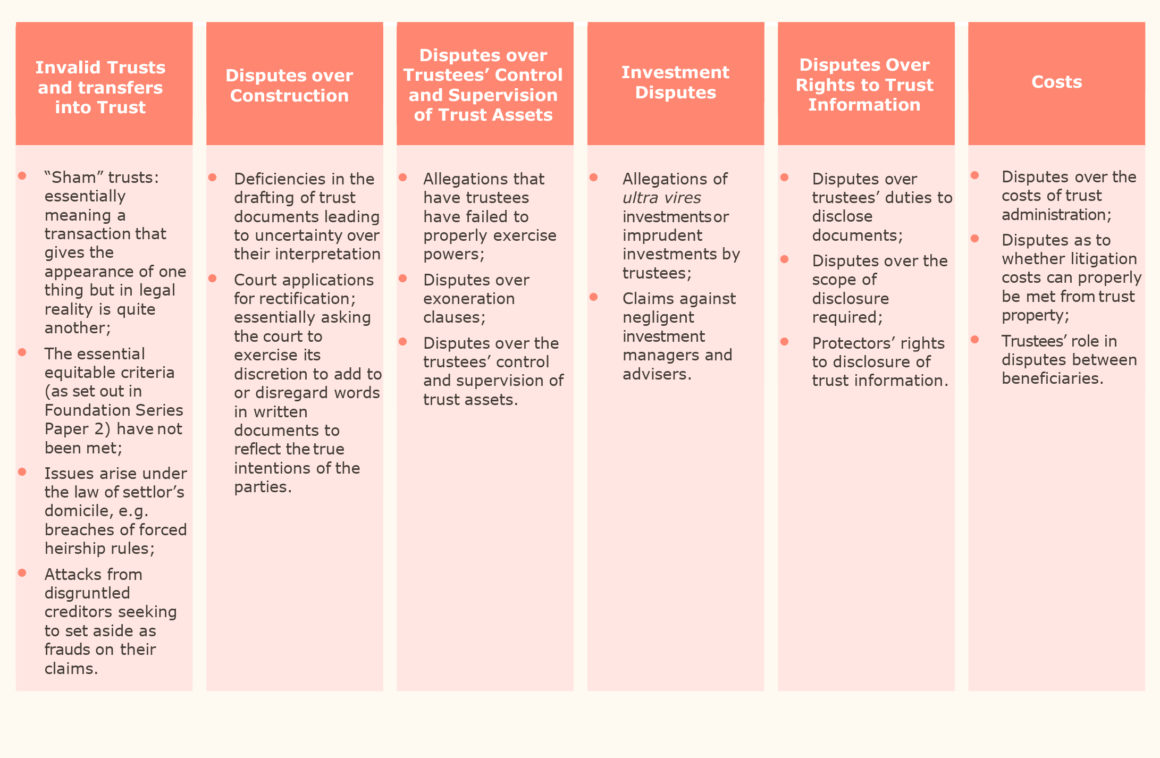As set out in Foundation Series Paper 3, trusts are set up for a number of reasons including:
It is therefore unsurprising that the validity and effectiveness of trust arrangements can come under attack from the likes of revenue authorities, creditors, former spouses and disgruntled beneficiaries and heirs. The potential for trust litigation can arise in many different guises, but those establishing or administering trusts may benefit from an awareness of the following commonly litigated areas and issues:
Trustees who find themselves embroiled in litigation face the potential for incurring significant financial liabilities. To minimise the risks, in addition to ensuring diligent administration, trustees should:
- ensure that they have clear instructions;
- take appropriate legal advice regarding the drafting of trust documentation including, from trustees’ perspective, advice regarding remuneration and exculpation clauses;
- take legal advice from the settlor’s jurisdiction.
Notwithstanding all care trustees take, they can still find themselves involved in litigation. In such circumstances trustees should act swiftly and take appropriate advice on, for example, whether to take an active or neutral role in the litigation and whether it is appropriate to apply to the court for a Beddoes or prospective costs order. In the later papers of this Trustee Knowledge Series, we will look at some of these areas of trust litigation with reference to cases.
For more specific advice on trusts in Jersey, we invite you to contact Giles Corbin or Michael Davies.











